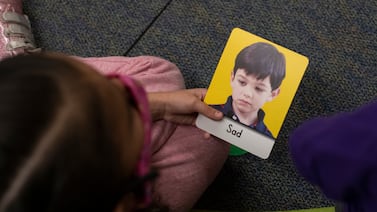Chalkbeat is a nonprofit news organization covering public education in communities across America. Subscribe to our free Colorado newsletter to keep up with education news from around the state: ckbe.at/subscribe-colorado
Colorado’s flagship public university won kudos Wednesday for its approach to training teachers on reading instruction, but in an unusual twist didn’t receive full state approval for one program because of allegations that a professor mistreated students.
The University of Colorado Boulder earned full state approval from the Colorado Board of Education for 11 programs in its teacher preparation program, but not school speech-language pathology, which is housed elsewhere in the university. That’s because two students in that program shared a “number of examples of alleged objectionable, confrontational, and unethical behavior by a particular professor” while they were talking with state reviewers who visited campus last fall, according to the state’s report.
The state board awarded the speech-language program only partial approval Wednesday. State reviewers will return to the university next October to determine if the university has done enough to address “negative behavior by faculty” and provide support for students.
Over the past four years, several prominent universities have received only partial state approval for some majors in their teacher prep programs because of problems with reading coursework. They include the University of Northern Colorado, Metropolitan State University of Denver, Regis University, and University of Colorado Denver.
But the University of Colorado Boulder received good reviews in that area. State officials reported that current students showed a clear understanding of evidence-based reading instruction and that all coursework is aligned with the science of reading — a large body of research about how children learn to read.
The otherwise positive evaluation was marred only by concerns about the professor’s behavior.
The state’s report didn’t identify the professor or describe any specific incidents of mistreatment, but did mention some faculty members shared stories about the professor similar to what the two students described. That information “appeared to illustrate a pattern of negative behavior over time,” the report said.
In a December letter to the Colorado Department of Higher Education, university Provost Russell L. Moore detailed the university’s response to the allegations, saying that after state reviewers raised alarm about the issue, it was immediately reported to the university’s Office of Institutional Equity and Compliance, which began an investigation.
Moore wrote that the professor received a formal letter describing the allegations on Nov. 13 and that the university would likely make a final decision on the matter within 60 days of the letter being issued. A university spokesman on Thursday couldn’t immediately say whether the university had made its decision.
Ann Schimke is a senior reporter at Chalkbeat, covering early childhood issues and early literacy. Contact Ann at aschimke@chalkbeat.org.







